- Georgia
- Thibaudet
- Michele Enrico Carafa di Colobrano
- oratorios
- music for percussion
- Sharon Kam
- Washington
- Sibelius Academy
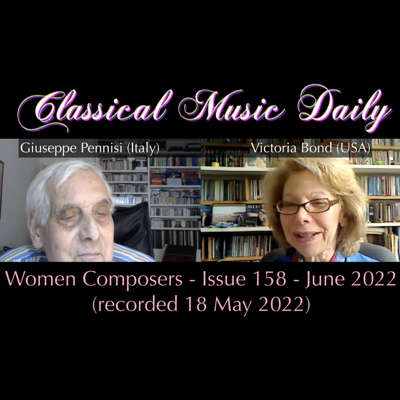 VIDEO PODCAST: Women Composers - Our special hour-long illustrated feature on women composers includes contributions from Diana Ambache, Gail Wein, Hilary Tann, Natalie Artemas-Polak and Victoria Bond.
VIDEO PODCAST: Women Composers - Our special hour-long illustrated feature on women composers includes contributions from Diana Ambache, Gail Wein, Hilary Tann, Natalie Artemas-Polak and Victoria Bond.
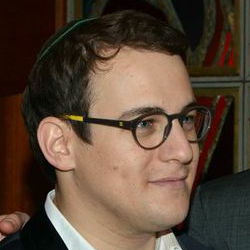 SPONSORED: Ensemble. Melting Rhapsody - Malcolm Miller enjoys Jack Liebeck and Danny Driver's 'Hebrew Melody' recital, plus a recital by David Aaron Carpenter.
SPONSORED: Ensemble. Melting Rhapsody - Malcolm Miller enjoys Jack Liebeck and Danny Driver's 'Hebrew Melody' recital, plus a recital by David Aaron Carpenter.
All sponsored features >>
Music through Breath
Adrian Kelly talks to Christian Curnyn about Handel's 'Acis and Galatea' as part of the Buxton International Festival Digital 2020 Season, heard by MIKE WHEELER
One of the many casualties of the cancellation of live events at this year's Buxton Festival was the Early Opera Company's production of Handel's Acis and Galatea, now rescheduled for 2021. Festival artistic director Adrian Kelly talks to the company's founder and Artistic Director, Christian Curnyn, in this audio-only interview.
Kelly begins by asking Curnyn how he got into music. He started on the recorder, he says, then moved to the trumpet, and especially enjoyed playing baroque music. His father's collection of recordings by the Academy of Ancient Music reinforced his enthusiasm. He enjoyed their sound-world, their vitality and rhythmic drive, and the sound of old instruments, very different to the style of performance still prevalent in the 1970s.
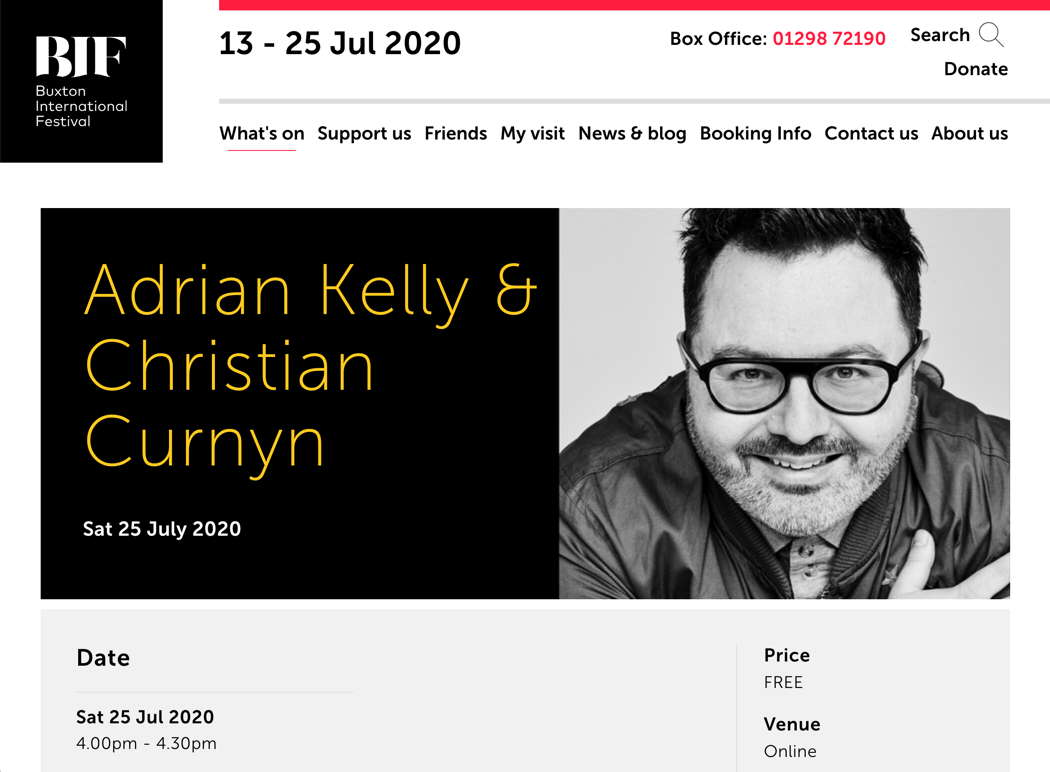
Online publicity for the Buxton Festival film Adrian Kelly & Christian Curnyn
Did he then go on to university? Yes, York, but he decided he didn't want to do music as a career. He enjoyed the course, 'but thought this isn't really for me'. He then started studying harpsichord with York University's baroque specialist, Peter Seymour, who at one point suggested Curnyn try and direct something. 'I thought he was mad - I'd only just started the harpsichord', but they decided on Blow's Venus and Adonis. 'It was great fun, I got the bug', and they put on an opera each year.
So was the Early Opera Company born in York? It's origins were there, says Curnyn, but it actually started in 1994, after he had taken a break. He was teaching piano when he saw Handel's Ariodante at English National Opera, and was totally blown away. The combination of 'wonderful playing, wonderful singing, amazing stagecraft' got him thinking 'this is what I want to do'.
Kelly notes Curnyn's gift for working with singers. He seems to understand them intuitively, and they feel comfortable, and free to explore things. Did he discover that with time? 'You learn on the job', Curnyn replies. What singers like the best is if you breathe with them. Having been a trumpet-player, 'I see music through breath'.
On the other hand, observes Kelly, with orchestras he can be quite a disciplinarian as well. Is there a difference between working with singers and instrumentalists? Instrumentalists, says Curnyn, are in two camps, the period specialists and the modern orchestra. 'Period instrumentalists tend to think in a more vocal way.' Using baroque bows is also crucial. Being lighter, they naturally play lighter on the upstroke, which makes it easier to mirror the words, whereas modern violinists are taught from an early age to play up- and down-bows equally, so you don't hear the difference. If players are keen they will do it and find it interesting. He takes a firm approach only to remind them. Doing Handel at English National Opera, Kelly observes, Curnyn made them sound like a baroque orchestra, and they were open to it. Curnyn agrees: 'absolutely!' When he did Partenope, his first opera with them, they were in a period of 'slight transition', from the Charles Mackerras era. Mackerras was an important figure in the Handel opera revival, and Curnyn pays tribute to his work. But for Partenope he got in some additional baroque specialists for the first time. It worked so well he was asked to do another six productions over the next seven or eight years.
Kelly recalls his own experience of playing continuo, of singing Handel a lot at university, and his own uncertainty of how to approach talking to instrumentalists. As conductor he feels 'intimidated' by the style, and imagines some instrumentalists feel the same way. He suggests they are grateful for someone leading them through the style, and how it feels to play this music. For Curnyn it is 'all about sensation'. It's a different sensation of playing, feeling and listening. The thing about Handel is his great simplicity, his ability to create emotion through really simple gestures. The way he builds a character like Cleopatra in Julius Caesar - 'it's alchemy'. They develop like characters in Shakespeare. Handel never does 'anything clever for the sake of it'. Nothing outstays its welcome, his harmonic language is never very complicated. 'It's incredibly different to Bach ... which relies on this intense chromaticism ... Handel is at his best when [the music] is the simplest.' He accepts Kelly's suggestion that where Handel is elegant and worldly, Bach is very devotional.
Turning to Acis and Galatea, Kelly asks 'is it an opera?' It was described in different ways at the time, says Curnyn: as a 'masque', a 'serenata' and 'a little opera'. Kelly points out its pastoral setting; is it also a dramatic story? For Curnyn it is 'incredibly deep and dark'. In addition to Handel's economy of forces, the choruses are very dense, and are central to the work. '"Wretched Lovers" is one of the finest choruses that Handel ever composed.' We then hear it, presumably from Curnyn and the EOC's own recording, visible in the accompanying still image but not specifically credited.
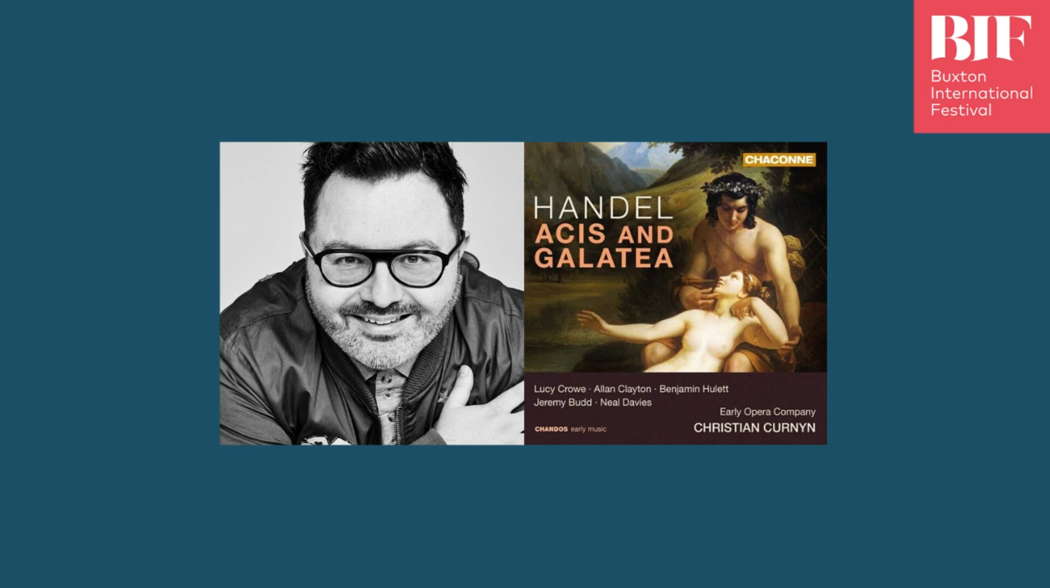
A screenshot from the Christian Curnyn conversation
Does the work stand up well to modern interpretations, and to being done in a more abstract way?. Absolutely, says Curnyn. When he first set up EOC, he insisted on the singers wearing modern costume. Handel's audiences, he asserts, were looking at people onstage in versions of their own clothes. The ENO production of Ariodante that made such an impact on him was done in a mixture of costumes. 'It wasn't old, it wasn't new. I think that is something that is very interesting.'
Kelly asks him about some of the directors he has worked with at ENO - great names such as Katie Mitchell, Christopher Alden, Barry Kosky, David McVicar and Richard Jones. Did he enjoy the process? Were there times when he wanted to 'push back'? 'Amongst all those people you've mentioned', says Curnyn, 'I've never needed to'. They are all very different. He loves performing, 'but for me the absolute highlight is being in the rehearsal room... I've conducted operas which were productions that hadn't worked, but I've never had somebody that I didn't actually respect.'
Kelly mentions baroque music often being compared to jazz, that there's something improvisatory, with the way that a continuo group is put together. Does baroque opera invite a degree of freedom? There is incredible freedom in early operas such as Monteverdi, says Curnyn. Handel is less like that. He recently conducted a run of The Marriage of Figaro in Basle, where the running time often changed from one performance to the next by as much as ten minutes. Baroque conductors, he says, have freedom and flexibility, which makes the music live a bit more. Mozart is more defined, says Kelly. Does Curnyn have to put a different hat on, or try and keep the same creativity and spontaneity in music from a later period? 'I try to do that', he replies. 'I haven't really got to grips with Mozart, I have to be honest ... I find Mozart absolutely elusive. That doesn't mean I'm not happy to do it.' Figaro is 'the best opera ever written ... I don't love it like I love many other operas, but it is so perfect ...' which leads him to a fascinating analogy: 'baroque music is like keeping a ball in the air... and with Mozart I feel like I'm throwing a piece of china in the air and trying to catch it each time.' 'The stakes are higher', suggests Kelly. Curnyn agrees: with everyone having their favourite Figaro, 'the weight of expectation is terrifying.'
Kelly moves the discussion on to other areas of the repertoire. There are quite a lot of lesser-known Handel masterpieces, and Curnyn has also done a lot of French opera, including Rameau and Charpentier. Kelly admits that for him these are 'quite elusive. I don't know much about that style.' Does Curnyn feel more improvisation is allowed here, or the style just as strict? And what about Monteverdi?
Monteverdi is not free recitative, he replies. It's not like the 'patter recit' of Rossini and Donizetti. Monteverdi is really spoken drama. In French baroque music there is a flexibility in ornamentation which is essential to the way the music works, and that can be tricky for a modern orchestra. Doing Rameau's Castor and Pollux at ENO, he insisted on all the string players using baroque bows - 'there's no reason to play French baroque music using a modern bow. You can do it but a whole opera would just be so tiring' - and baroque flutes: 'that sound-world is so important ... they have such a different timbre to modern flutes.'
Kelly asks if there is any area of the repertoire he hasn't done and would like to explore? He mentions Telemann, to which Curnyn responds with great enthusiasm, mentioning Orpheus in particular. Charpentier's Medée 'can never be done too much. I think it's the absolute crowning glory of the French baroque', even including Rameau. Among Rameau's own operas, he thinks the finest is Les Boreades - 'crazy and amazing'.
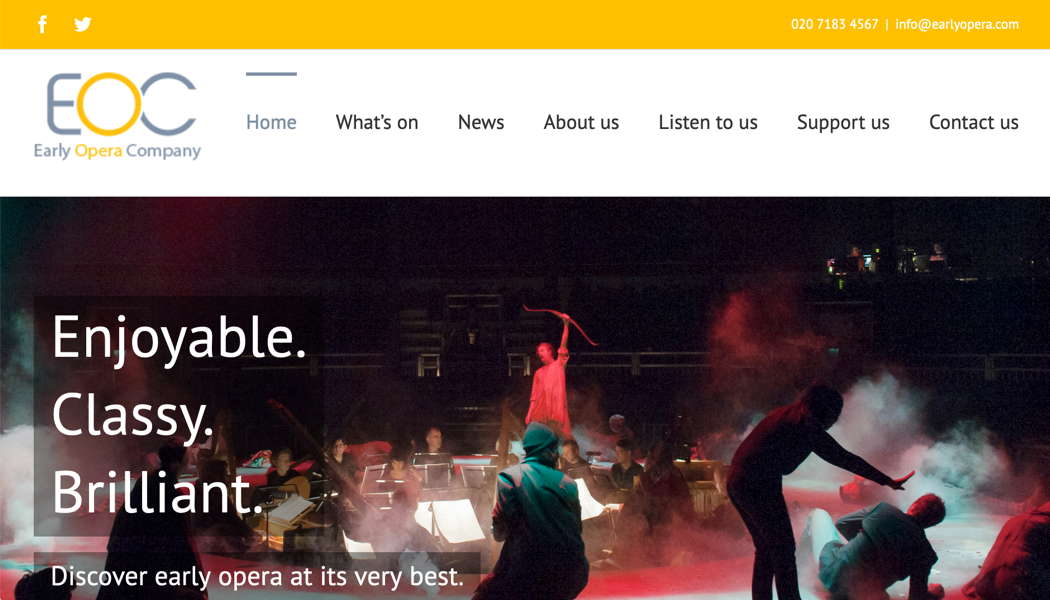
A screenshot from the Early Opera Company website
Holding out the exciting prospect of a possible future Buxton production of Medée, and looking forward to Acis and Galatea next year, Kelly closes the interview.
Copyright © 10 August 2020
Mike Wheeler,
Derby UK

FURTHER INFORMATION: BUXTON FESTIVAL
FURTHER INFORMATION: BBC PHILHARMONIC ORCHESTRA


